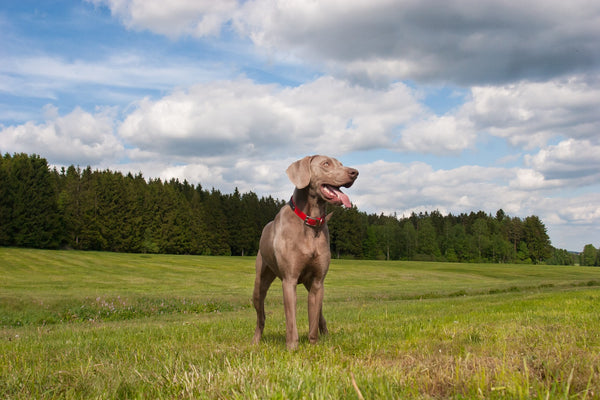
Senior Dog and Cat Foods: What Makes Their Needs Different?
As pet owners, we realize that our beloved pets have shorter lifespans than us humans. That is why we need to do everything in our power to make the time we do have together count. It is also our responsibility to ensure our fur babies are happy and healthy during their life.
This means being aware of their physical capabilities/limitations and mental state as they age. Our mature pets have different needs as they grow older and we need to make the necessary adjustments as they enter their ‘golden’ years—not only altering their diet, but also making changes to their routine and the manner in which we care for them.
Why Do Our Senior Pets Have Different Needs When They Mature?
Like all living creatures, our pet’s physical capabilities, cognitive function, and over-all health have the propensity to decline as they age. Therefore, our senior dogs and cats will require a different ‘style of care’ than when they were playful, energetic pups and frisky kittens.
For pet owners, it will be important to recognize when our fur babies start to show any signs of aging. When we are aware of their changing needs, we can adjust and enhance their nutritional intake to help alleviate some of the issues they may have—or in the very least, make their lives more comfortable.
Signs of aging
- Decreasing activity level
- Issues with mobility
- Weight concerns (loss or gain)
- Problems with digestion
- Changes in appearance of skin and coat
- Urinary issues
- Hearing and vision loss
- Behavioral changes
What You Can Do for Your Senior Dog and Cat
Whether you own a dog or cat, the aging process for each individual pet will be unique. The breed, size, lifestyle, and overall health will all play a factor as your dog or cat enters their adult stage of life. For instance, while many pets remain quite spry in their golden years, there are those who will prefer napping all day rather than playing a game of fetch or chasing mice out in the yard. There are even some pets that will develop behavioral problems as they grow older (not wanting to interact with other animals, children, or even adults). Elder pets might also become more finicky or selective in the food they eat.
Dogs and cats require special attention as they age; more specifically, because their nutrient requirements change as they mature, their diet will also have to be altered.
One of the most important things we can do for our aging pets is to provide the ‘right’ food in their diet. Making certain they consume an optimal blend of balanced nutrients will be key in supporting their physical health, cognitive abilities, and organ function as they age. Equally important, what you feed your pet in their senior years can improve their quality of life.
How do you choose the right food to meet your aging pet’s nutritional needs- especially with a market inundated with options?
Best advice here is to consult with your veterinarian first. In addition to saving yourself a lot of time trying to decipher the ingredients on a dog food label, your vet should be able to make nutritional recommendations based on any issues your pet is having. Your vet can also offer invaluable suggestions in changing your pet’s diet for preventative care, so you can avoid any potential health problems your dog/cat might experience down the road.
Here’s some additional information specifically related to dogs and cats to better help you understand their nutritional needs when they become seniors.
At what age is a dog typically considered a senior?
Generally speaking, it is not uncommon for pet owners to begin noticing the advanced signs of aging around the 7 year old mark. While this is true for many dogs, there are also a number of pups that will enter their senior year at different stages depending on their breed and size.
Larger breed dogs (51 to 100lbs) such as Great Danes, Mastiffs, and Great Pyrenees are considered mature dogs at 5 to 6 years old while smaller breeds (under 20lbs) such as Yorkies and Chihuahuas achieve senior status at 10 to 12 years old.
At what age is a cat typically considered a senior?
Today’s cats are living longer as a result of better nutrition, as well as home and veterinary care.
Although some cats can begin to show signs of aging at 7 years old, the general rule of paw is that cats become classified as seniors between their 11-14th year with ‘super seniors’ categorized as 15 years and older.
These determining age factors, along with your keen sense of observation and a consultation with your veterinarian, will help you determine and plan for the changing needs of your canine and/or feline as they grow older.
Senior Dog and Cat Diets
Nutritional requirements for a senior dog or cat are essential in supporting your pet’s changing system. As dogs and cats both age, these are a few conditions and diseases that can be managed, alleviated, or influenced in small ways or entirely by the nutrients your pet consumes:
- Cognitive decline/ Dementia
- Reduced energy levels
- Digestive issues
- Obesity/weight gain
- Weight Loss
- Organ dysfunction
- Arthritis
- Skin Disease
- Dental Disease
- Certain Cancers
Choosing the ‘Right’ Food for Your Senior Dog and Cat
The truth is there is no ‘one size fits all’ in regard to a senior’s nutritional needs.
In fact, in regard to dogs, the Association of American Feed Control Officials (AAFCO) has not yet determined official dietary requirements for seniors because dogs can vary significantly in their individual needs.
Yet, that doesn’t mean you won’t be able to find the ‘right’ balance of nutrition for your senior dog or cat.

The Importance of protein- Protein in a senior pet’s diet is necessary for maintaining healthy skin & hair, regulating metabolism, and healing damaged tissue. In premium dog/cat food such as Spring Naturals, protein is typically listed first on the ingredient label. Beef, chicken, turkey, lamb or duck are the proteins most often listed. Other sources include fish, fish meal, liver, eggs, milk, milk products as well as novel proteins such as kangaroo, buffalo, bison, and goat.
Spring Naturals’ Senior Dog food maintains our high quality protein standards, including using high protein counts, human-grade proteins, whole meats and no meals or fillers.
Calories count- In general, seniors on the younger side will tend to be overweight while older pets have a tendency to be underweight.
The calories found in dry commercial dog food tend to vary widely—ranging from 246 to 408 calories per scoop; so you’ll need to adjust (restrict/enhance) your senior dog’s calorie intake depending on whether they need to lose or gain weight.
For senior cats, the ideal intake is roughly 280 to 360 daily calories depending on the normal lean weight—as long as they are healthy.
Food for organ health- Limiting dietary sodium and phosphorus will be essential if a senior pet has been diagnosed with heart, kidney, or liver disease. Although many commercial foods won’t provide the proper nutrients necessary for organ health (or even list them on their label) your veterinarian should be able to provide a prescription diet that will aid your senior dog or cat with these specific health issues as they age.
Nutritional supplements- Although many premium commercial pet foods already contain all the vitamins and minerals a dog/cat needs, seniors that have special needs can benefit from a number of nutritional supplements:
- Unsaturated fatty acids such as oleic and linoleic acids play an important role in cell structure and function as well as support skin and coat health.
- Minerals such as calcium, iron, phosphorus and nitrate help maintain healthy bones and teeth; while magnesium, potassium, and sodium are essential for nerve impulse transmission, muscle contraction, and cell signaling.
- A combination of antioxidants—vitamin E, L-carnitine, lipoic acid, vitamin C along with probiotics, digestive enzymes, and certain vegetables/fruits can help support a healthy digestive system while improving immune function.
- Glucosamine hydrochloride, chondroitin sulfate, and omega-3 fatty acids (eicosatetraenoic acid (ETA), eicosatetraenoic acid (EPA), and docosahexaenoic acid (DHA) can help seniors that suffer from arthritis (joint pain and inflammation). Omega-3 fatty acids, DHA in particular, can also improve cognitive function.

Spring Naturals Pet Foods
Although the variability in nutrient and ingredient content can make choosing one a bit overwhelming, your decision should always be based on your senior pet’s specific needs, diagnosed health conditions, disease risk, and lifestyle. Your veterinarian’s suggestions and recommendation will be key in maintaining your dog’s health and they should always be consulted when considering a change in your pet’s diet.
Spring Naturals’ Senior Dog food contains lower fat, while maintaining our high standards of quality proteins and fruit & vegetable superfoods. Our cat diets cover all life stages in one meal. Kitten, Adult and Senior cats can eat the same food, just offering more or less depending individual needs.
Whether you switch to a senior version of the same brand or decide to try something new with similar ingredient and nutritional profiles, you’ll want to gradually transition your pet to their new food. Slowly transitioning their food will enable you to monitor your dog or cat for any adverse signs of gastrointestinal issues or trouble with digestion (such as vomiting, diarrhea, or weight loss). If your pet is having difficulty adjusting to their new diet—adding a little chicken or beef broth might just do the trick in making the food more palatable.
Providing the healthiest food tailored to your senior pet’s aging needs is just as important as giving them the comfort, love, and patience they’ll need when they enter their golden years.
Equally important, when you make your senior pet’s health a priority it will give you peace of mind knowing you have done everything you can to keep your beloved pet happy, healthy, and by your side…for as long as possible.

Post a Comment!